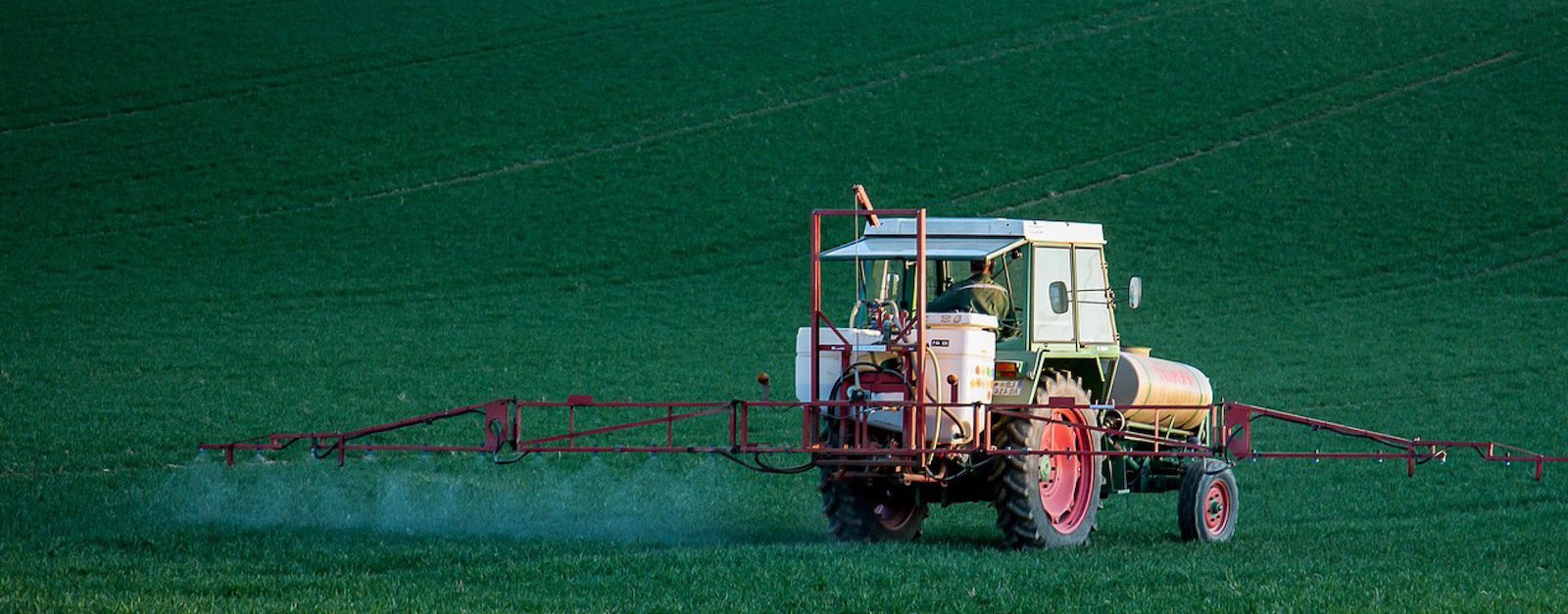Glyphosate is a widely used herbicide and the active ingredient in popular weed killers like Roundup. It was first introduced in the 1970s and has since become one of the most extensively used herbicides globally. The reason this is important is because glyphosate is found in a number of commonly eaten foods, including healthy options, such as vegetables, fruits, whole grains, and more.
Glyphosate has been implicated as a possible endocrine-disrupting chemical (EDC), capable of interfering with hormone function. EDCs can mimic, block, or disrupt the action of natural hormones. EDCs can have broad-ranging effects on reproductive health, growth and development, metabolism, immunity, and neurological function.
Glyphosate and Pregnancy
In animal studies glyphosate exposure during pregnancy caused abnormalities not only in immediate offspring but also in the following generation. Higher blood levels of glyphosate have been tied to lower birthweights and shorter pregnancies.
Glyphosate may also affect male fertility. Studies have shown that male rats given glyphosate experienced adverse reproductive effects, such as reduced sperm counts and reduced testosterone levels.
Glyphosate and Development
Delayed puberty, infertility problems, and decreased sex hormones are all observed consequences of glyphosate exposure. In animals, glyphosate has been shown to alter the development of the ovaries and uterus. Polycystic ovary syndrome (PCOS) is another glyphosate concern. Glyphosate is thought to bind to estrogen receptors in females and also disrupt pathways that create male sex hormones.
Glyphosate and Immune Function
Glyphosate exposure can affect the immune system by disrupting its natural functions. These include the ability of immune cells to fight off infections. Animal studies have linked glyphosate exposure to fewer immune cells and increased infections.
Glyphosate and the Gut
Emerging research suggests that glyphosate may disrupt the digestive tract and the gut microbiome, the community of bacteria and microbes that live in the gut. The effects of glyphosate on intestinal health have also been observed in animal studies, including increased inflammation in the small intestine.
Glyphosate and Cancer
The relationship between glyphosate and cancer is a subject of ongoing research and debate. Currently the World Health Organization ranks glyphosate as “probably carcinogenic to humans.” One study in mice indicated an increased incidence of malignant lymphoma with a high dose of glyphosate. However, it is difficult to conclude that glyphosate poses a cancer risk due to the complex causes of lymphoma and the extremely high dose used in the study.
However, in a 2019 research review, scientists assessed the relationship between exposure to glyphosate-based herbicides and non-Hodgkin lymphoma (NHL). They found that individuals with the highest levels of exposure had a 41% increased risk of developing NHL. These findings support previous evidence from animal research, which shows a strong connection between glyphosate-based herbicide exposure and a higher NHL risk.
How to Avoid Glyphosate in Your Diet
As concerns about the potential health risks of glyphosate exposure grow, many consumers seek ways to avoid this herbicide. While it may be challenging to completely avoid glyphosate due to its widespread use, there are strategies to minimize its consumption.
Glyphosate levels in food vary from product to product and also country of origin. But studies have found that adopting an organic diet can lead to a significant decrease in glyphosate in the body, as much as 70% in five days.
The Environmental Working Group (EWG) released a list of the top 12 conventionally produced foods to avoid because of their likelihood of being contaminated with glyphosate and other chemicals. The EWG uses up-to-date data provided by the FDA. The DIRTY DOZEN™ foods to avoid for 2023, unless grown organically, were strawberries, spinach, greens (kale, collard, and mustard greens), peaches, pears, nectarines, apples, grapes, bell and hot peppers, blueberries, and green beans.
Additionally, the EWG creates a list of foods that consistently show low levels of glyphosate and other pesticides, regardless of whether they are organic or not. The CLEAN FIFTEEN™ for 2023 consists of avocado, sweet corn, pineapple, onions, papaya, frozen sweet peas, asparagus, honeydew melon, kiwi, cabbage, mushroom, mango, sweet potato, watermelon, and carrot.

